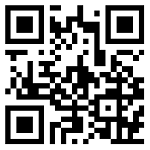提醒:点这里加小编微信(领取免费资料、获取最新资讯、解决考教师一切疑问!)
(1)表示方位的副词(如there,here,up,down,out,in,away等)位于句首,句子谓语是go,come,run等表示位置的动词,可将谓语动词全部置于主语之前。
There goes phone again. It’s not stopping ringing all morning.
电话铃又响了。整个上午都响个不停。
There remains the possibility that mistakes have been made.
仍然有可能出了差错。
Here comes the train to Beijing.去北京的火车来了。
There goes the bell.铃响了。
Down came the rain.下雨了。
但主语是人称代词时,主语仍置于动词之前。
Here he comes.他来了。
Here it comes.它来了。
(2)由一些表示方位的介词短语引起。
In the middle of the mountain lies a temple.
山里有座庙。
Inside the temple live many monks.庙里有很多和尚。
(3)一些作表语的形容词放在句首。
Seated in the lecture hall are hundreds of students.
演讲大厅里坐着数百名学生。
Present at the conference were many famous people.
出席会谈的是很多著名人士。
下列情况需要部分倒装
(1)句子以never,seldom,rarely,little,hardly,scarcely等否定意义的副词以及by no means,not until,not a word,not a single等否定词开头的词组一般都用部分倒装语序。
提醒:点这里加小编微信(领取免费资料、获取最新资讯、解决考教师一切疑问!)









